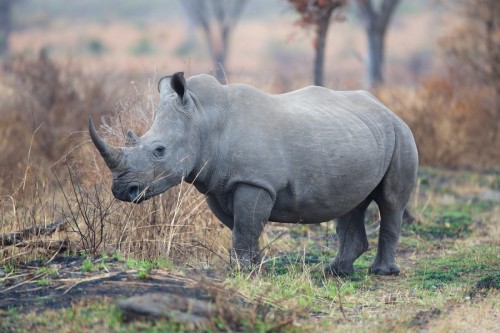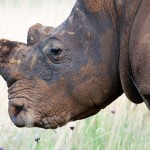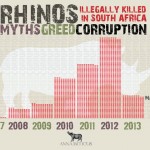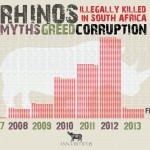by Cindy Tilney, courtesy of Conservation Action Trust

On August 12, Minister Edna Molewa announced South Africa’s intention to implement an integrated management strategy to reducing rhino poaching – but the failure to change legislation related to the issue, the delay in signing a formal agreement with Mozambique following the signature of a MoU between the two countries, and the lack of decisive action against trafficking in rhino horn has conservationists questioning whether the government is truly committed to winning the war against poaching.
According to the Minister, the strategy will include boosting crime-fighting capacity in Kruger, establishing an Intensive Protection Zone in the hardest-hit areas of the park, translocation of rhino to lower-risk areas of the country and neighbouring countries, engaging with surrounding communities and engaging with neighbouring states.
But while increased policing may increase the number of arrests, it is unlikely to achieve conviction of the illegal wildlife trade’s kingpins without amendments to legislation governing minimum sentences for rhino poaching and magistrates’ discretion to grant bail. A memorandum containg requests to amend these pieces of legislation was sent to South African embassies around the world, the South African president, vice-president, Minister Molewa, the IFP, the DA, SANparks and the Chief Magistrates’ Court, among others.
Minister Molewa also conceded that there has been no further action regarding the signature of a formal agreement with Mozambique since the MoU was signed in April, other than ‘a few meetings to discuss implementation’.
Since the start of this year, 631 rhinos have been poached for their horn, and of those 408 have been killed in the Kruger Park, signalling the urgent need for effective intervention in the park. In that time, only 176 arrests have been made.
On the issue of possible trade in rhino horn, there is also no final decision, said Molewa. In June this year, the Department of Environmental Affairs (DEA) stated that it had appointed a Panel of Experts to advise parliament on the feasibility of trade in rhino horn. However, when pressed for names during the briefing, Minister Molewa refused to disclose these, adding that those selected for the PoE were ‘professional men and women from various sectors’ who are currently undergoing a security assessment to confirm their suitability for the Panel. Only once they have been fully vetted will the DEA release their names, she said.
The minister’s response is indeed curious as it is known that the PoE met for the first time in 8 April 2014, as well as on a number of occasions subsequently, and that the members are Fundisile Mketheni, Dr Mike Knight, Dr Sam Ferreira, Pelham Jones and Keith Lockwood – all dyed-in-the-wool trade protagonists.
The DEA’s clear intention to trade in ivory and rhino horn is a bone of contention with both local conservationists, and the international community who feel that this will send mixed messages, fuelling demand from consumer states, and ultimately increasing poaching.




